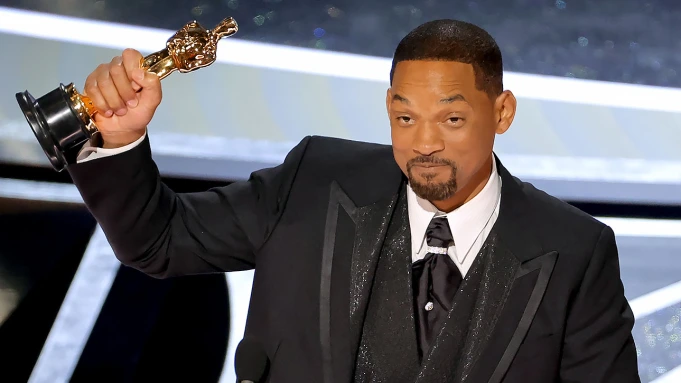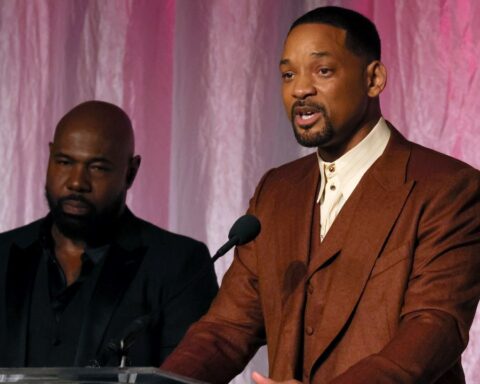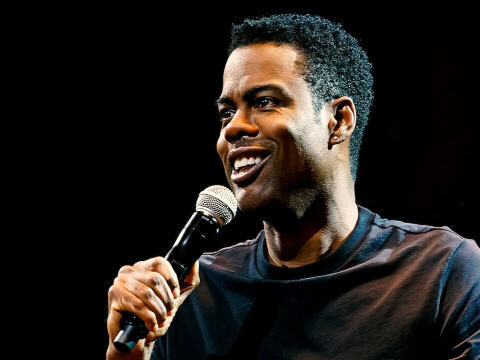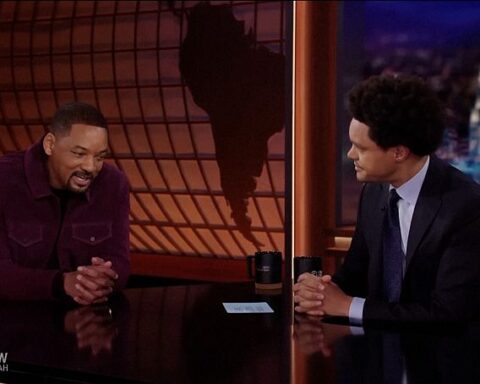It may have been the most shocking moment in the 94-year history of the Academy Awards — and one that could loom over the actor’s image for many years.
Will Smith is one of the undisputed kings of modern Hollywood, a box office titan who has made millions with big-screen spectacles like “Independence Day” and “Men in Black.”
But in more than 30 years as an actor, Smith clearly always harbored grander ambitions, keeping one eye on commercial glory and the other firmly set on film projects that showed off his dramatic acting chops.
He received his first Oscar nomination in 2002, for the Michael Mann biopic “Ali.” He lost to Denzel Washington. He was up again five years later for “The Pursuit of Happyness.” He lost to Forest Whitaker.
Sunday night was expected to end differently — and it did: Smith finally won an Academy Award, for his title role in the stirring drama “King Richard,” a portrait of Richard Williams, the ambitious father of tennis greats Venus and Serena Williams.
But his moment of triumph on Hollywood’s biggest stage was overshadowed by the smack seen around the world — or at least by the people who tuned into ABC for the 94th Academy Awards or those who were following along on social media.
Chris Rock, presenting the award for best documentary feature, cracked a joke about Smith’s wife, Jada Pinkett Smith, saying he was excited to watch her in “G.I. Jane 2” — a reference to her shaved head. (In 2018, Pinkett Smith revealed she was diagnosed with alopecia, a condition that causes hair loss.)
Smith, evidently incensed by the remark, marched to the main stage at the Dolby Theatre and slapped Rock.
The audience went silent, seemingly paralyzed by confusion and shock. The audio feed on TV screens across the U.S. cut out as Smith returned to his seat and shouted an expletive at Rock.
Smith was back on the Dolby stage minutes later to accept his Oscar for “King Richard.” It was clear he would need to scrap whatever acceptance speech he had crafted. The suspense was palpable.
Tears streaming down his face, Smith apologized to the film academy as well as the Williams sisters. Smith did not address Rock, who has mocked Pinkett-Smith in years past, and he tried to justify what he had done.
“Richard Williams was a fierce defender of his family,” Smith said.
“I’m being called on in my life to love people and to protect people and to be a river to my people,” he added.
Smith’s speech was raw, emotional and larger than life, but in ways he almost certainly did not expect when he settled into his front-row seat at the Dolby.
The enthusiastic awards buzz for the aptly titled “King Richard” represented his coronation, and the Oscar that every awards pundit correctly predicted was coming his way was a career capstone.
He went into the ceremony as a veritable lock for the prize, having already won equivalent trophies from the Screen Actors Guild Awards, the Golden Globe Awards and other industry events.
In the immediate aftermath of the confrontation, the potential reverberations were still coming into focus. The Los Angeles Police Department said it was aware of the incident. Rock declined to file a report, police said.
But it was plain to see that the incident would likely be inextricably linked with Smith’s victory — and possibly his public image — for many years to come.
Smith’s spokesperson did not immediately respond to a request for comment Sunday evening after the Oscars.
The academy, after the show wrapped, tweeted a brief message without mentioning Smith or Rock by name, saying the organization “does not condone violence of any form.”In true Hollywood fashion, the ceremony featured a jaw-dropping twist. In the long run, “the slap” may be more intensely dissected and hotly debated than any film nominated for best picture this year.





